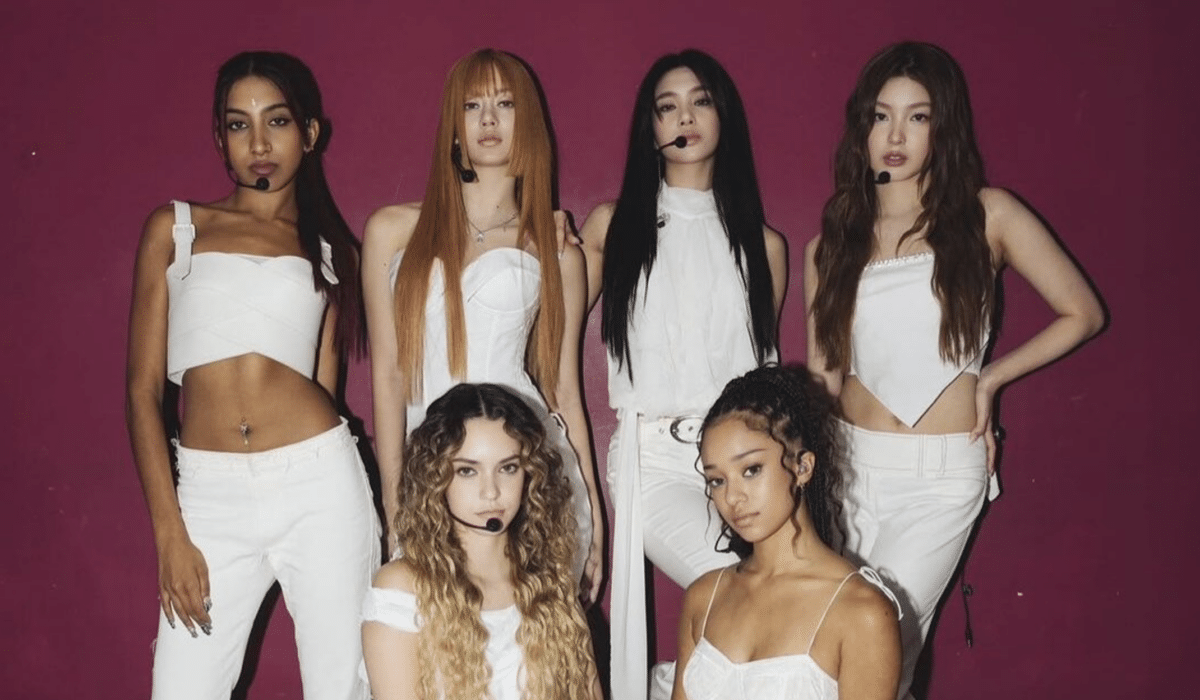
Popstar Academy: Katseye members: Lara, Megan, Sophia, Yoonchae, Daniela, Manon —@KATSEYEWORLD INSTAGRAM
Origin stories are popular because they represent a point in life where the main characters are most relatable. This relatability is why K-pop survival shows have a huge following. Viewers get a preview of the raw talent of the trainees, learn about their initial dreams and discover quirks that explain the “why” behind their eventual debuts.
This is also the reason “Popstar Academy: Katseye” is such an engrossing eight-episode docuseries. It follows the journey of 20 young women who aspire to become members of Katseye, the first global group from HYBE x Geffen. HYBE is the entertainment company behind K-pop powerhouses like BTS, Seventeen, NewJeans and Enhypen.
The main difference between this docuseries and traditional K-pop survival shows is that what you see in the episodes does not happen in real time. Therefore, it does not affect the outcome of the competition. The show was filmed around three years ago, rendering the tension and drama surrounding the girls inconsequential in the present.
We already know who the winners are: Sophia, Manon, Lara, Daniela, Megan and Yoonchae were named as members almost a year ago. Filipina Sophia Laforteza was the frontrunner throughout the competition due to her talent and the solid support she received from the nation. She eventually became the group’s leader. They were chosen from 120,000 aspirants from all over the world.
The sheer number of those who auditioned was daunting, but the contestants were initially narrowed down to 14 members. They eventually added more contestants to the competition until they ended up with the 20 who competed in Dream Academy.
Journey
“These girls are on their own journey, but doing it together. They have control over their own fate, depending on how hard they work and how badly they want it,” said John Janick, chair and CEO of Interscope Geffen A&M, in the first episode.
This statement becomes ironic because the series later shows that none of the girls were truly in control of their fate. Perhaps it referred to the idea that their hard work and improvements would dictate whether they would remain in the training program. In general, the girls had no idea about the direction of their stay in Los Angeles. They didn’t know when their training would end or when they would debut.
“I don’t think there’s been a project done like this before—taking the K-pop method of developing and training, but applying it to pop music,” said Janick.
The training program is a strong incentive for budding artists. It takes them away from everything they know so they can focus on improving their singing and dancing, essentially becoming the all-rounders expected of idols. The girls themselves said that it feels like a school, which it essentially is. Even living together in the dormitory prepares them for the possibility of working with strangers in the future.
The trainers and coaches are introduced in the show, where we see them forming emotional connections with the trainees. In Korean survival shows, what we know about the trainers is primarily their body of work and accomplishments. We might see them smiling in approval or frowning with disappointment, but we rarely learn more about them beyond their facial expressions.
In contrast, we learn that Missy and Nikky Paramo are sisters, and we see snippets of them dancing. Both are training and development managers at HYBE. We also see the girls’ evaluators and coaches crying over their successes and heartbreaks. They hug the girls and offer encouraging words to continue pursuing their dreams—something almost impossible to see in Korean shows.
Star power
HYBE chair Bang Si-hyuk monitors the progress of the trainees through a tablet from Korea. “I’m sure you’ve experienced the situation where you’re instantly drawn to a person on stage. That’s star power, but it’s hard to notice it in trainees. Despite that, the most successful producers in this industry, like myself, can identify it. All you need is just one scene,” said Bang.
We get a preview of how culture influences the relationships among the girls. They come in with what they know and practice at home, only to discover that this is not how it works with others, especially not in the entertainment industry. They eventually sort things out through conversation.
“Popstar Academy” may initially throw you off with how “nice” the adults are, in contrast to Korean survival shows where excellence is demanded from every trainee. Most of the time, evaluators and coaches prioritize mental health, even when the girls are kept mostly in the dark.
We see how minors are allowed to live with their families instead of staying in dorms. They’re even encouraged to maintain social media accounts, as long as they don’t share anything related to music production.
However, the pressure is still there. The aspirants are up against the cream of the crop; all of them are talented and under constant public scrutiny. Eliminations are a reality, and no matter how talented they are, there is little they can do if they are not well-liked.
“Popstar Academy” provides a look at the difficulties and the challenges of the Katseye girls—the friendships they made, the struggles they had to overcome before they could eventually charm the world with their song “Touch.”